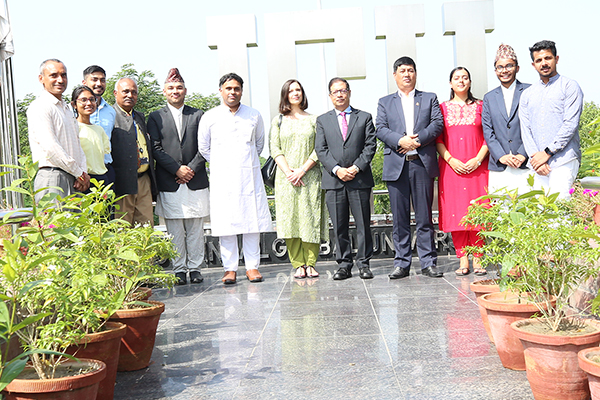
Youth Forum for Foreign Policy
It is an initiative that seeks to develop an informed and substantive dialogue on foreign policy issues among India’s youth, and to ensure that India’s foreign policy is more responsive to the concerns of the youth. It seeks to bring together Foreign Policy Stakeholders (policy makers, government officials, members of political parties, policy think thanks) and youth groups on the same platform to discuss specific thematic and regional foreign policy issues. Youth Forum on Foreign Policy started as a conversation between four like individuals in New Delhi in 2011. Over the years, our presence has expanded to cities such as Mumbai, New Delhi, Bangalore, Kolkata & Guwahati.
Vision of the Fellowship
We, at the Youth Forum on Foreign Policy and Jindal School of International Affairs believe that discourse on International Relations and Foreign Policy is too important to be left to the specialists. The involvement of a substantive and informed dialogue besides research work is an essential part of bringing it into day to day discussion. The Fellowship seeks to stimulate and enhance young thinkers’ capacity for research and praxis. It seeks to address a growing need for education, which can create an ecosystem for research, and make foreign policy and relations an integral part of the academic curriculum. It looks forward to establish an interface between young researchers, experienced practitioners and scholars from different areas of expertise. The overall mission is to stimulate large numbers of students to reflect and undertake research on international relations and foreign policy. This would help the young minds of our country to develop informed views and opinions and contribute to the international discourse. Brevity and articulation in writing would be central to the Fellowship. The programme is focused on creating a think tank in India, which will participate and lead the discussions on international relations and foreign policy.
 |
Ms. Loveleena Sharma Loveleena Sharma has done her Masters in International Relations from South Asian University and Bachelors in Political Science from Delhi University. She is a Commissioning Editor at E-International Relations. Her major areas of interest are Role of Media in Diplomacy, South Asian affairs and Cultural Studies. Her other interests include reading, cinema, and theater. |
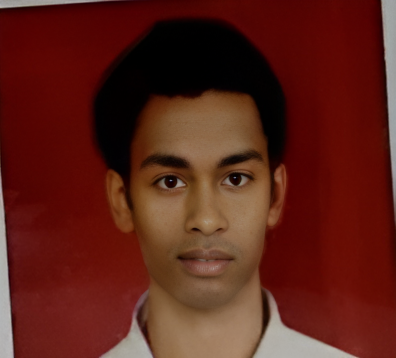 |
Mr. Moses Raj GS Moses Raj G S is a lawyer and a former Advertising professional and is currently an intern with The Energy and Resources Institute (TERI), New Delhi where he is working towards expanding scholarship in Nuclear Law. He is a writer, theatre aficionado and travel enthusiast. |
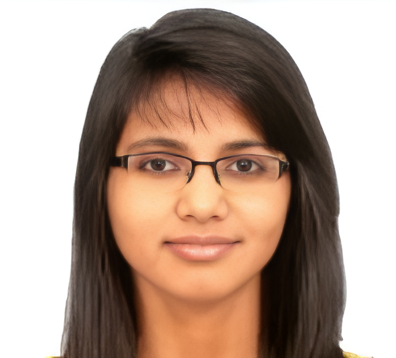 |
Ms. Angana Das Angana Das has done her Masters in Conflict Analysis & Peace Building from Jamia Millia Islamia and Bachelors in Political Science from University of Delhi. She has experience of interning and working in development and media organizations such as Hindustan Times Edge, PRS Legislative Research, National Commission for Women, Save the Children where she has undertaken research and advocacy work. Her areas of interest include Alternative Approaches to Peace Building Practices, Non-traditional Security Threats and the Role of International Organizations in Conflict Resolution and Development. |
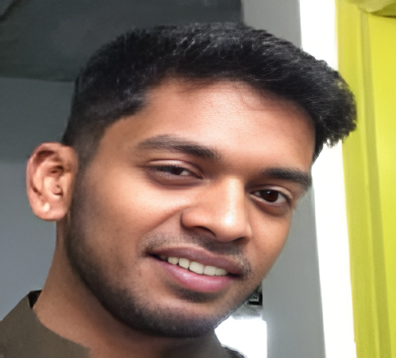 |
Mr. Joy Mitra Joy Mitra has done his Masters in Diplomacy, Law and Business from Jindal School of International Affairs. Currently he is affiliated with Wikistrat as a Researcher and as a Contributing Analyst with New York based Indrastra Global. His writing has featured in ICS Analysis, Indrastra, Stimson’s South Asian Voices, The Diplomat, FPRC Journal, International Policy Digest etc. |
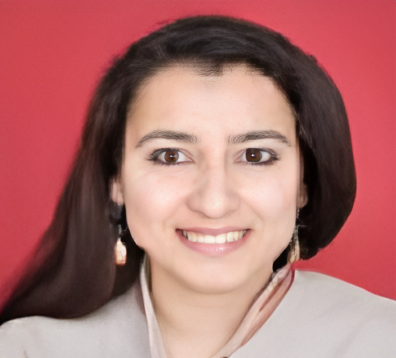 |
Ms. Nayantara Shaunik Nayantara Shaunik has done her Masters in International Relations from The London School of Economics and Political Science and Bachelors with Honours in Political Science from the University of Delhi. She is a Research Analyst who has worked on Southeast Asian politics with special reference to Myanmar and the impact of the US, China, and India on the ASEAN and beyond. She is presently looking at deconstructing the dynamics of regional economic cooperation on the idea and theory of the “Indo-Pacific”. |
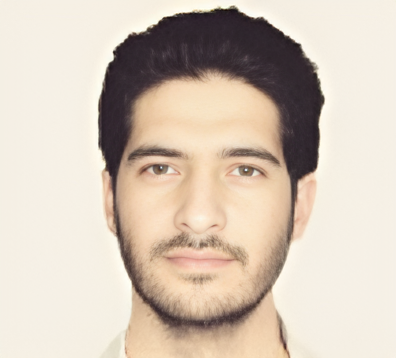 |
Mr. Peerzada Raouf Peerzada Raouf has done Masters from the Centre for Studies in Regional Development, Jawaharlal Nehru University and Bachelors in Geography from Aligarh Muslim University. He is a PhD candidate at the Department of Geography, Delhi School of Economics. His PhD work is titled The Political Economy of Spatio-Geographical Dimensions of Hydro Politics: A Case Study of the Energy Paradigm of Jammu and Kashmir. His research interests are Critical Geography, Hydro-politics, Human Geography, International Relations and Politics in South Asia. He has been a part of the project on the Gender Atlas of India and is associated with the Developing Countries Research Centre (DCAC). He has nearly two years of teaching experience as an Assistant Professor at Dyal Singh, Miranda and Kirori Mal colleges of Delhi University. |
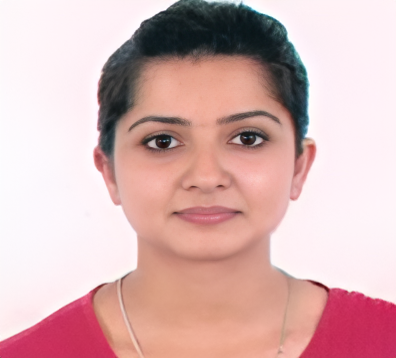 |
Ms. Prapti Adhikari Prapti Adhakari is a citizen of Nepal. She has completed her Masters in (International Relations) from South Asian University in New Delhi and Bachelors in Development Studies. While pursuing undergraduate studies, she has worked with various NGOs. She also freelanced for an NGO and The Asia Foundation’s collaborative research related to Earthquake Aid Impact Assessment in Nepal. Presently, she is working as Reporting and Communications Officer at Handicap International for the Emergency Response Division. Her areas of interest are diverse- Culture/Cultural Studies, Peace and Conflict Studies and Development. While she is an avid read of fiction stories, she also likes to write, besides being a passionate dancer. She strongly believes that ‘Life is to learn’. |
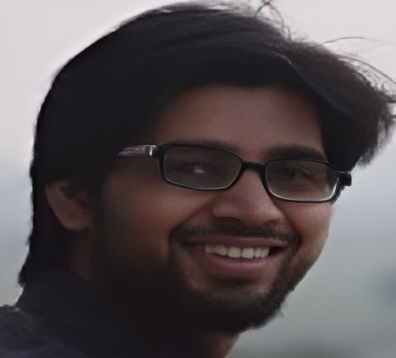 |
Mr. Syed A A Farhan Syed A A Farhan, has done his Masters in Diplomacy, Law and Business from Jindal School of International Affairs. He is an International Affairs and a Non-traditional Security Analyst. He has presented his work at numerous conferences and has worked in ‘Risk Analysis’ for over two years. His areas of interest include Engaging closely in the Intersection of Politics, Climate Change, Sustainability and Security. |
The YFFP-JSIA Collaboration is inactive for the moment.
Regional Economic Cooperation
The theme of Regional Economic Cooperation will be focused not merely on the progress of individual blocs like SAARC, ASEAN, NAFTA and SADC. Fellows will be encouraged to compare the progress of these blocs, and also examine the potential for cooperation between different blocs especially those like SAARC and ASEAN. In addition to regional blocs, another important area under this theme is trade and connectivity between countries in a region outside the confines of a regional bloc. In South Asia for instance, Bangladesh, Bhutan, India and Nepal are seeking to enhance land connectivity under the BBIN Corridor. An understanding of the key theories of regional cooperation will be helpful/necessary.
Energy Security
Fellows will be encouraged to research on the link between energy demand and geo- political issues, such as events in Eurasia, Africa and the Middle East. Research on new areas, such as the impact of the Shale Revolution in USA on global geo-politics, and the impact of energy demand on the approach of great powers to energy rich regions would be welcomed. A sound and nuanced understanding of geo-politics, along with energy issues would be helpful.
South Asian Affairs
Under this theme, Fellows are encouraged to adopt an interdisciplinary approach to issues pertaining to South Asia. Some possible issues which can be researched under this theme are- the impact of economic ties on political relations within South Asia, democratisation in South Asia, and the growth of civil society. In addition to this, Fellows are also encouraged to examine the role of external powers such as China and US in South Asia.
Climate Change
Under the theme of climate change, some of the issues which Fellows can research include- the key institutions and factors influencing climate change policies in individual countries as well as at multilateral forums, differences between the developing and developed world and the potential for reaching a compromise, likely conflicts arising out of climate change in the developing world, the role of India and China in current debates on climate change – especially in the context of the upcoming Climate Change Summit in Paris.
Cyber Security
Under this theme, some suggested areas which can be researched are- international treaties and conventions pertaining to cyber security, emerging themes in cyber threats and future conflict between great powers over cyber issues, the balance between privacy, civil liberties and national security, the usage of cyber technologies for the spread of terrorism on a global scale etc. Fellows will also be encouraged to specifically examine the differing approaches of great powers to cyber security and its impact on traditional security doctrines.
International Culture and Media
Under this theme, some suggested topics that can be researched are- the role of national culture and news media in projection of soft power by different countries, the importance of cross-cultural understanding to improve fraught bilateral relationships between countries, the role of mass media in promoting enmity and friendship among nations; the emergence of new media and how it is transforming diplomacy, statecraft and social perceptions of local and global developments.
The fellowship programme is looking forward to scholars and researchers who have completed their Master’s Degree or have an equivalent qualification from a recognized University/Institution. The applications are open for non-Indian scholars as well.These fellows should have an interest in research based work along with efficient writing skills.